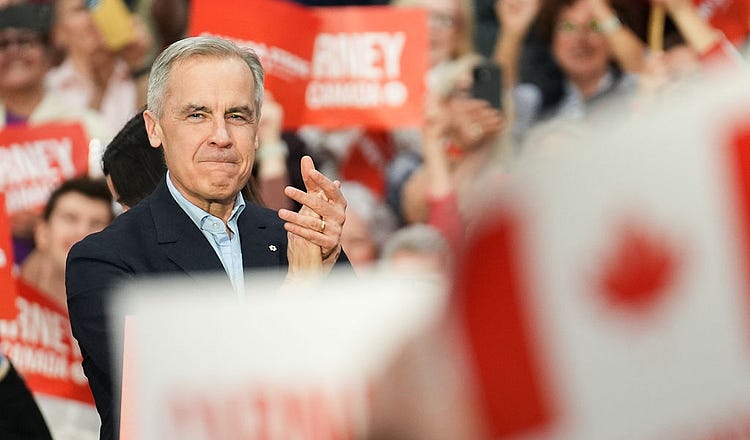
Hello from Ottawa, capital of the independent country still known as Canada. We’re electing a prime minister on Monday, with polls showing Liberal incumbent Mark Carney with an edge over his Conservative challenger, Pierre Poilievre.
The winner will have to deal with a series of crises—anemic growth, a divided citizenry, hockey teams that haven’t won a Stanley Cup in more than 30 years, and a trade war with our southern neighbor’s president, Donald Trump. “I love the Canadian people. I like Canada,” Trump said yesterday. And while we appreciate the kind words, what we’d really love to do is sell your country stuff like cars. We build good cars in Canada. We’re not just producing beaver pelts anymore.
More on that below.
But first, let’s talk about some of the more outrageous things that happened in Canada this week . . .
Jewish Businesses Vandalized in Toronto
Over Passover, three businesses in the predominantly Jewish Toronto suburb of Thornhill—an area that is considered generally quiet and safe with a strong sense of community—were broken into and vandalized. Among them were two Jewish-owned businesses, My Zaidy’s Pizza, a community staple since 1983, and the neighboring shop, Shaynees Gifts. Both had their cash registers looted.



